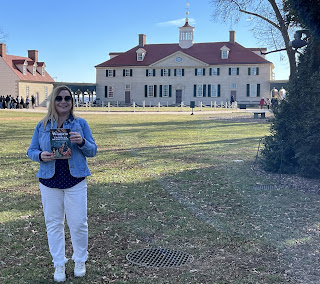 |
| Reading of the Declaration of Independence in Philadelphia, 1776 |
On July 3rd, John Adams wrote to his wife, Abigail, as he would hundreds of times over the decades of his service to America. This day, he shared historic news:
"The Second Day of July 1776, will be the most memorable Epocha, in the History of America.—I am apt to believe that it will be celebrated, by succeeding Generations, as the great anniversary Festival. It ought to be commemorated, as the Day of Deliverance by solemn Acts of Devotion to God Almighty. It ought to be solemnized with Pomp and Parade, with Shews, Games, Sports, Guns, Bells, Bonfires and Illuminations from one End of this Continent to the other from this Time forward forever more.
You will think me transported with Enthusiasm but I am not.—I am well aware of the Toil and Blood and Treasure, that it will cost Us to maintain this Declaration, and support and defend these States.—Yet through all the Gloom I can see the Rays of ravishing Light and Glory. I can see that the End is more than worth all the Means. And that Posterity will tryumph in that Days Transaction, even altho We should rue it, which I trust in God We shall not."
 |
| John Adams |
John may have been wrong about July 2nd, but he was correct about the birth of the United States being 'the most memorable Epocha in the History of America' and on the 4th 'it will be celebrated, by succeeding Generations, as the great anniversary Festival.' Do we sometimes forget what it cost and just how much we have been blessed to inherit? We do, as do most generations who were not the ones to struggle and fight for something. Maybe John's words can serve as a reminder as we prepare to celebrate everything that is wonderful about this historic republic.
So, how did John Adams get it wrong? Or is it the rest of us celebrating the wrong day?!
 |
| Independence Hall, Philadelphia |
 |
| Assembly Room, Independence Hall |
After Abigail Adams heard the Declaration read in Boston on 18 July 1776, she wrote to John:
Abigail Adams
"Great attention was given to every word. As soon as he ended, the cry from the Belcona, was God Save our American States and then 3 cheers which rended the air, the Bells rang, the privateers fired, the forts and Batteries, the cannon were discharged, the platoons followed and every face appeard joyfull. Mr. Bowdoin then gave a Sentiment, Stability and perpetuity to American independance. After dinner the kings arms were taken down from the State House and every vestage of him from every place in which it appeard and burnt in King Street. Thus ends royall Authority in this State, and all the people shall say Amen."
It was not until 2 August 1776 that the Declaration was signed by 50 (of the 56) members of congress, but I would not suggest our celebrations be held until that date! By the time our Founding Fathers were passing away, the 4th of July was accepted as the traditional day of celebration. Both John Adams and Thomas Jefferson died on 4 July 1826. In Jefferson's last letter, he wrote, "For ourselves, let the annual return of this day forever refresh our recollections of these rights, and an undiminished devotion to them." Fifth president, James Monroe, also died on the 4th of July in 1831. When fourth president and primary author of the Constitution James Madison was dying in late June 1836, physicians offered to extend his life by stimulants to ensure that he also died on the historic date. Madison declined and died on 28 June.
You can also find more articles here.
Join me on your preferred social media for daily fun facts, on this day in history posts, and lots of pictures!
Sources:
https://founders.archives.gov/documents/Adams/04-02-02-0016
https://www.battlefields.org/learn/primary-sources/lee-resolution
https://founders.archives.gov/documents/Adams/04-02-02-0033



No comments:
Post a Comment